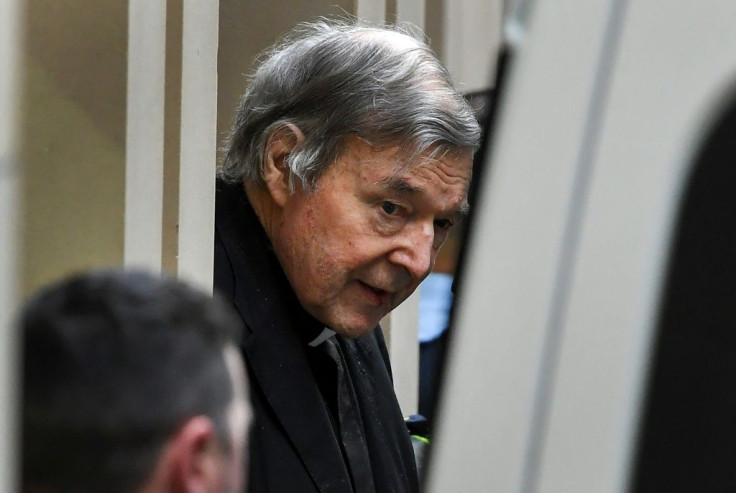Prosecutors Defend Case Against Cardinal Pell's Child Sex Abuse Appeal

Australian prosecutors on Thursday defended their case against disgraced Cardinal George Pell under a barrage of questioning from judges, as the final day of his appeal against child sex abuse convictions began.
The 78-year-old former Vatican treasurer is trying to overturn a six-year sentence for sexually assaulting two choirboys in the mid-1990s.
Pell, who once helped elect popes, is the highest-ranking Catholic Church official ever convicted of child sex crimes.
The case has proved highly divisive in Australia, attracting protesters and supporters on Thursday to the High Court in Canberra, where they carried rival signs that read "Criminal Pell: pedophile icon" and "We love you Cardinal George Pell, and genuine victims."
Separately, local media reported a Melbourne man was charged Wednesday with threatening to kill Pell and making a bomb threat.
A three-judge panel last year upheld a jury's decision to find Pell guilty on five counts of abusing two 13-year-old choirboys at a Melbourne cathedral when he was archbishop of the city.
He was not present for the two-day hearing, which could see the court's seven judges reject or uphold the appeal, or send it back to a lower court to reconsider. A decision could be be handed down Thursday or take several months.
In stark contrast to Wednesday's hearing, when Pell's lawyer Bret Walker was largely able to speak uninterrupted, the judges grilled the prosecution about the case, which had pitted the powerful clergyman against a former choirboy victim now in his 30s.
Walker had argued the evidence pointed to "compounding improbabilities", including that Pell would not have had the time or opportunity to molest the boys in the priests' sacristry after Mass.
He said it was Pell's custom to greet churchgoers on the cathedral steps after Mass and the archbishop would then be accompanied into the sacristry to de-robe amid a "hive of activity".
Prosecutor Kerri Judd rejected the assertion that amounted to an alibi for Pell, urging the judges to look at "the whole of the evidence" which showed he did not always stick to routines.
"There was evidence that demonstrated a preparedness not to comply with those practices and it goes into the mix of all the evidence," she said.
She also told the court the victim's detailed description of the priests' sacristry -- which was off-limits, almost always locked, and described as a "mystery" to choristers -- was a "powerful" piece of evidence to support his account of the abuse.
The case relied solely on the testimony of Pell's surviving victim, as the other -- who is not known to have ever spoken of the abuse -- died of a drug overdose in 2014. Neither man can be identified for legal reasons.
Pell has been removed from top Church bodies by the Vatican but remains in the priesthood.
The Vatican previously said it would avoid launching an investigation into his conduct until after all legal avenues are exhausted.
The hearing is scheduled to conclude later Thursday.
© Copyright AFP 2024. All rights reserved.





















